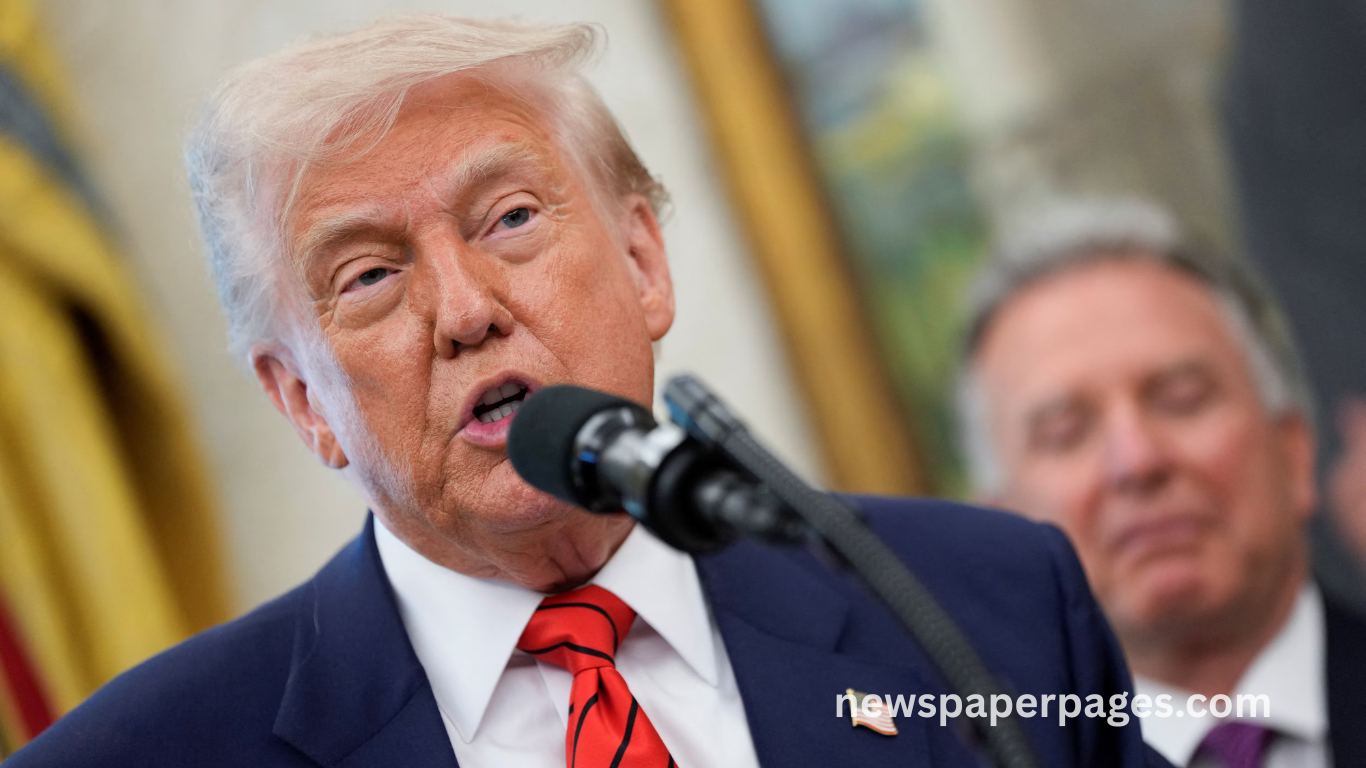Former President Donald Trump’s latest move to influence Washington’s legal landscape has sparked a political storm. His pick for the U.S. Attorney for the District of Columbia, a role critical in overseeing some of the nation’s most sensitive federal prosecutions, is stirring intense debate in legal and political circles. The nominee’s background, perceived allegiances, and the broader implications of the appointment have amplified partisan divisions in the Senate, making the path to confirmation highly uncertain.
The U.S. Attorney for D.C. holds substantial authority, often acting as the central figure in major investigations involving national security, public corruption, and high-profile federal crimes. With Trump potentially positioning himself for another presidential run, his nominee’s confirmation battle is more than a personnel decision—it’s a litmus test for the Senate’s willingness to support Trump-aligned figures in key judicial roles.
Trump’s Strategic Intent Behind the Nomination
Trump’s choice for the top prosecutor role is seen as a calculated move to embed loyalists in pivotal legal positions. The nomination serves both as a test of GOP unity and a strategy to influence future judicial proceedings, particularly those that may touch on Trump or his allies.
The Role and Importance of the U.S. Attorney for D.C.
This prosecutor is unique in overseeing both local and federal cases, giving them unmatched reach in the nation’s capital. The position is mighty due to its involvement in politically sensitive investigations that often impact national discourse.
The Nominee’s Background and Controversies
Trump’s pick has a mixed record—praised by conservative commentators for a tough-on-crime stance yet criticized for past comments and partisan behavior. Past work in high-profile legal battles and alignment with Trump-era policies may complicate Senate support.
Senate Dynamics and the Confirmation Process
The Senate’s narrow partisan divide means that even one defection could derail confirmation. Moderate Republicans and all Democrats are under pressure from constituents and advocacy groups, turning the vote into a political minefield.
Concerns from Legal and Civil Rights Communities
Civil rights advocates have expressed alarm over the nominee’s record on police oversight, criminal justice reform, and civil liberties. Legal experts argue the role demands impartiality, which some say the nominee lacks due to overt political affiliations.
Impact on Future Federal Prosecutions and Investigations
If confirmed, the nominee could influence high-profile investigations related to January 6, political corruption, or election integrity. This has heightened stakes, with critics warning of potential misuse of prosecutorial discretion.
Frequently Asked Questions
Who is Trump’s nominee for Washington’s top prosecutor?
While the nominee’s name has not yet been publicly confirmed, reports suggest a figure closely aligned with Trump’s legal and political vision is under consideration.
Why is this position so influential?
The U.S. Attorney for D.C. handles both federal and local prosecutions in the capital, making it one of the most potent prosecutorial roles in the country.
What are the main criticisms of the nominee?
Critics point to a partisan record, lack of support for criminal justice reform, and concerns about independence in politically charged investigations.
How does the confirmation process work?
The Senate Judiciary Committee must approve the nominee and then confirm it by a majority vote in the full Senate.
What could block the confirmation?
Defections from moderate Republicans, unified Democratic opposition, or revelations during Senate hearings could derail the nomination.
Has Trump made similar appointments in the past?
Yes, Trump has a history of appointing loyalists to key judicial and prosecutorial positions, often sparking criticism of politicizing the justice system.
What are civil rights groups saying about this nomination?
They are raising alarms about the nominee’s stance on police accountability, protestor rights, and past statements that undermine civil liberties.
Could this affect ongoing investigations?
Yes, the U.S. Attorney for D.C. often leads politically sensitive investigations, and critics fear partisan bias could influence outcomes.
Conclusion
Trump’s nomination for Washington’s top prosecutor is shaping up to be an intensely contested political battle. With high stakes and growing public scrutiny, the confirmation process could reshape the legal landscape in D.C. and beyond. Watch this space as the Senate weighs a decision with lasting implications for justice and democracy.

